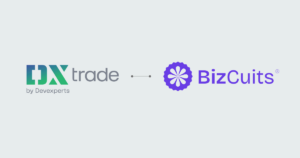US Trustee challenges Global Brokerage’s Chapter 11 bankruptcy plan
The US Trustee argues against certain broad releases set to be granted to FXCM Group and Leucadia, as well as the compensation to be paid to Global Brokerage’s CEO Kenneth Grossman.

When Global Brokerage Inc (OTCMKTS:GLBR), formerly known as FXCM Inc, filed for Chapter 11 bankruptcy, it said it anticipated to expedite the process. The situation, however, has turned out to be more complex with the first signs of a potential slowdown of the procedure appearing on Wednesday, January 10, 2018.
United States Trustee William K. Harrington has submitted an objection to confirmation of the Prepackaged Plan of Reorganization of Global Brokerage, Inc. Pursuant to Chapter 11 of the Bankruptcy Code (“the Plan”). The Trustee alleges that certain provisions in the Plan do not comply with the Bankruptcy Code and applicable case law.
In particular, the Trustee argues against certain broad releases to be granted to Leucadia National Corp. (NYSE:LUK), FXCM Group and its subsidiaries/affiliates, as well as against the compensation to be awarded to Global Brokerage’s CEO Kenneth Grossman.
- Releases
According to the Trustee, Global Brokerage has not met its burden of demonstrating that the releases given in its plan are fair and equitable.
The proposed Plan provides for broad releases by Global Brokerage of certain “Released Parties.”
The Released Parties are defined as follows: “(a) the Debtor and Reorganized Debtor; (b) Global Brokerage Holdings, (c) the D&O Releasees; (d) Leucadia; (e) the Consenting Noteholders; (f) the Indenture Trustee; (g) FXCM; and (h) with respect to each of the foregoing entities in clauses (a) through (g), such entities’ predecessors, successors and assigns, subsidiaries, affiliates, managed accounts or funds, current or former officers, directors, principals, shareholders, members, partners, employees, agents, advisory board members, financial advisors, attorneys, accountants, investment bankers, consultants, representatives, management companies, fund advisors and other professionals (including the Retained Professionals), and such entities’ respective heirs, executors, estates, servants and nominees, in each case, solely in their capacity as such”.
- What are they released from?
Well, the list is quite long.
It includes “all claims, obligations, rights, suits, damages, causes of action, remedies, and liabilities whatsoever related based on or relating to, or in any manner arising from, in whole or in part: (i) GLBR; (ii) GLBR’s bankruptcy estate; (iii) the conduct of GLBR’s business; (iv) GLBR’s Chapter 11 Case; (v) the purchase, sale, or rescission or the purchase or sale of any security of GLBR or reorganized GLBR; (v) the purchase, sale, or rescission or the purchase or sale of any security of GLBR or reorganized GLBR; (vi) the subject matter of, or the transactions or events giving rise to, any claim or interest that is treated in the Plan; (vii) the Leucadia Credit Agreement, the Group LLC Agreement, etc”.
According to the Trustee, the Court should review the Debtor Releases with heightened scrutiny. The Released Parties, he notes, include the current and former directors and officers of the Debtor. Additionally, the released parties include Leucadia, an entity that owns a 49.9% interest in Global Brokerage Holdings, the entity through which the Debtor derives all of its revenue.
In applying heightened scrutiny and some skepticism, the Court will find that the Debtor Releases, as currently drafted, are overbroad, the Trustee says.
Additionally, it appears that the non-debtor affiliates, such as FXCM, are releasing their claims against the Debtor. Therefore, to the extent that there is securities litigation or other litigation against non-debtor affiliates, successful plaintiffs may not be able assert “piercing the corporate veil” or other arguments against Global Brokerage due to granting of the mutual releases between the Debtor and non-debtor affiliates. The Debtor must explain whether the releases cover this scenario.
Finally, with respect to the Third-Party Releases, it appears that the definition of “Releasing Parties” is tailored to only certain named parties and only holders of claims who vote to accept the Plan. To the extent the Court may ultimately be persuaded that the Third-Party Releases satisfy existing Second Circuit precedent, any confirmation order should make crystal clear that the only parties bound by the Third-Party Releases are named parties and holders of claims that have voted in favor the plan.
- Kenneth Grossman’s bonus
The Grossman Employment Agreement provides for both an annual salary of $600,000 and a “Completion Bonus” of $1,000,000 payable as a lump sum on July 31, 2018.
According to the Trustee, the Court should not approve the assumption of the contract of Kenneth Grossman without Global Brokerage establishing compliance with requirements set forth in the Bankruptcy Code (Section 503(c)). The Trustee emphasizes that the Congress enacted section 503(c) as part of amendments to the Bankruptcy Code to “eradicate the notion that executives were entitled to bonuses simply for staying with the Company through the bankruptcy process”.
Section 503(c) operates as follows:
“First, if a debtor proposes to (i) make a transfer or incur an obligation; (ii) to or for the benefit of an insider of a debtor; (iii) for the purpose of retaining that insider, it must meet the strict requirements of section 503(c)(1). To avoid the strict requirements of section 503(c)(1), a debtor must show that the proposed transfers are not to insiders of a debtor or, if the recipients of the proposed transfers are insiders, that the transfers are not being made for the purpose of retaining those insiders. If the Court determines that an employee is an insider and that the program proposed is primarily retentive, then a plan must meet the requirements of section 503(c)(1).”
The Trustee argues that Global Brokerage must show that the Completion Bonus is a “pay for value” plan that offers incentives based on performance rather than a “pay to stay” plan.
The confirmation hearing of Global Brokerage’s plan is scheduled for January 17, 2018.









